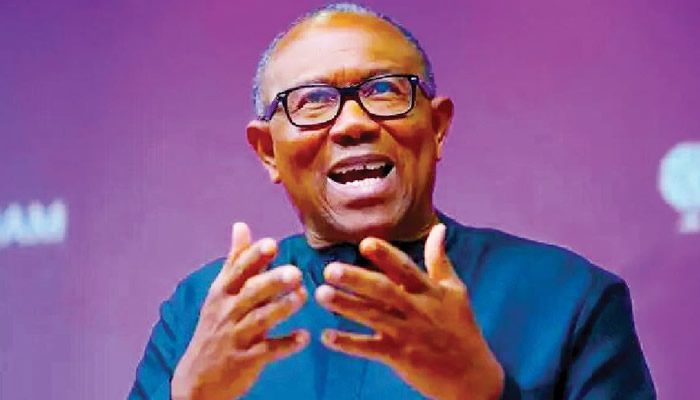In response to the recent hike in petrol prices, Peter Obi, the Labour Party’s presidential candidate during the 2023 general election, labeled the increase as “unfortunate and insensitive” in a statement shared on his X.com account. This announcement came after the Nigerian National Petroleum Company Limited (NNPCL) escalated the retail price of petrol from N897 to N1,030 per litre at multiple stations in Abuja. The recent adjustment marked the second price increase within a month and represented a notable rise of 14.8 percent, translating to an additional N133 per litre. The spike in fuel prices has led to a surge in transportation costs, exacerbating the economic struggles faced by Nigerians amid already challenging financial conditions.
Obi emphasized the severe implications of the fuel price hike on the country’s economy and the overall wellbeing of its citizens. He asserted that the responsibility for reversing this sudden increase lies primarily with the Minister of State for Petroleum Resources, Sen. Heineken Lokpobiri, as well as President Bola Tinubu. According to Obi, the government’s poor policy decisions have led to the challenging economic climate, contributing to the burden that Nigerians currently bear. He criticized the NNPCL for imposing another price increase without providing adequate justification, which he deemed a reflection of insensitivity to the hardships faced by the populace.
In his statement, Obi expressed his concerns regarding the management of the country’s resources and questioned the governance framework surrounding the NNPCL and the regulatory agencies, including the Nigerian Upstream Petroleum Regulatory Commission (NUPRC) and the Nigerian Midstream and Downstream Petroleum Regulatory Authority (NMDPRA). Obi pointed out the ambiguity surrounding the roles of these entities under the supervision of the Federal Ministry of Petroleum Resources, questioning who is overseeing whom. This confusion adds complexity to the government’s accountability in the face of rising fuel prices.
Furthermore, Obi criticized the casualness with which the government has approached the situation, particularly during a time when the citizens are experiencing unprecedented hardship. He called for immediate action from the government to address the price increase, which he believes reflects a lack of compassion for the plight of everyday Nigerians. Obi’s comments fervently underscored the need for transparency in decision-making processes affecting the lives of citizens, urging the government to prioritize the welfare of the populace over political or corporate interests.
Following the fuel price hike, there were strong reactions from labor unions and industry representatives. Joe Ajaero, the President of the Nigeria Labour Congress, condemned the NNPCL’s decision, arguing that a private company should not have the authority to dictate fuel prices that impact the general population. Additionally, the Independent Petroleum Marketers Association of Nigeria (IPMAN) threatened to cease operations nationally in protest against the pricing policies set by the NNPCL. They highlighted the discrepancy in costs, revealing that while the Dangote Petroleum Refinery offered petrol at about N898 per litre, the NNPCL was selling to independent marketers at an inflated price of N1,010 per litre in Lagos.
This situation reflects broader systemic issues within Nigeria’s petroleum sector, including regulatory challenges and the implications of privatization. The actions of the NNPCL, now operating as a limited liability company, have led to confusion about the management and oversight of the petroleum supply chain. With increased prices having detrimental effects on the economy, fueled by transportation costs rising, the call for government intervention and regulatory clarity is more pressing than ever. The discourse around these issues, led by figures like Obi, highlights the urgent need for the government to adopt policies that prioritize the economic resilience of its citizens amid fluctuating global oil prices.














